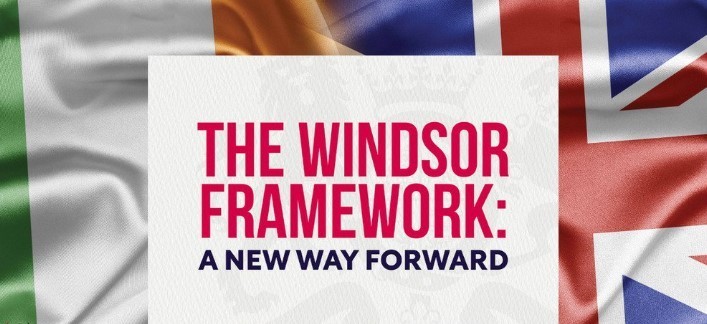It is of benefit to take away some of the myth and complexity around the Northern Ireland (NI) situation and to start to take a pragmatic approach on the basis that the Windsor Framework (accepting that there are a plethora of technicalities) does in fact simplify matters and will hopefully make trade that much easier into the island of Ireland.
I will endeavour to put some facts behind this statement ref NI in particular:
What is the TSS (Trader Support Service) and how does it work?
The TSS is in effect a CDS (Customs Declaration Service) extension that processes entries on behalf of UK traders coming into NI. The system prepares a simplified declaration in the first instance based on data supplied by the haulier / consignor and passes information through to NI Customs to say that a supplementary declaration needs to be completed by the tenth calendar day of the month following the goods movement. It would be dependent on the Incoterms as to who (consignor or consignee) needs to create the supplementary declaration.
What is the UKTS (UK Trader Scheme) and how does it differ from the UKIMS (UK Internal Market Scheme)?
The UKTS (now invalid since 30/9/23) was set up post Brexit to enable subscribers to this authorisation to process goods into NI without paying duties if goods were staying in NI. The UKIMS (an enhanced trusted trader scheme) is basically the same but with slightly different parameters (eg you do not need a permanent business establishment in NI) to replicate the UKTS.
Where does the agreement rolled out last year fit into the above and how does it affect freight companies and traders when shipping goods into NI and whether goods are “At Risk” or “Not at Risk”?
If you are not signed up to UKIMS going forward, you may be in the uncomfortable position of not being able to use the “Green Lane” channel that will come into operation in September 2024. If by that time you have not joined the UKIMS, Customs may view your goods as “At Risk” into NI and therefore potentially liable to duties irrespective of where the goods are finishing their export journey.
There may be some glaring gaps in this summary eg (exports from NI to GB) and duty waiver opportunities, but to keep things simple (and reasonably short!) these have been purposely omitted.
Please note that although we were promised a paperless scheme that would suit all parties (EU/GB/NI) pre-Brexit, it could be argued that we will never quite get there as the commercial invoice does not go away. The sophisticated nature of the IT systems now in place does however facilitate the transfer of information very well but the need for XI and UK EORI numbers is still a consideration that should also be built into the set-up of the process.
For any further information / explanations around these points, please do not hesitate to contact us.
























